Financial Check-Up
Many of us spend hours each week working on our physical health with exercise and clean eating. And every year, like clockwork, we visit our doctor for our annual wellness check. But how many of us pay just as much attention to our financial wellbeing? According to the founder of Diazo Wealth, Justin Long, very few do, even though maintaining your financial health is just as important as your physical health.
If it’s been more than a year since you’ve reviewed your financial goals and position, this blog post is for you. Before we get down to how to do an annual financial check-up, let’s talk about the “why,” or more commonly, the “why not?” Long says most of us avoid this process for a couple of reasons. It exposes things we may not want to see. Plus it takes some intentionality: sitting down to find the time to do it. And in our time-strapped world, that’s not easy to do. But Long says you’re never too busy to do something that matters.
Doing a financial check-up is akin to building a roadmap to financial freedom. Long says he encounters clients who will often say to him, “I’m only 40. Retirement is a long way away.” “That’s right,” Long says, “but it’s never going to happen if you don’t plan for it now.” An annual review is the temperature check you need to make sure you’re still on track.
So where to begin. Think of it in four simple steps:
- Evaluate where you are including your investments and your current budget.
- Make sure you have an emergency fund.
- Review all your insurance and your debt.
- Review your long-term goals and make necessary adjustments.
Let’s dive a little deeper into each step.
![]()
Evaluate your current situation.
If you and your family work within a monthly budget, you’re already ahead of the game. How does your spending stack up against your income? Are you spending more than you make? With Amazon’s “buy now” button and credit cards galore, it’s really easy to spend these days. “Consumerism and velocity of spending tend to get out of control with modern conveniences,” Long says. But this is not about cutting your spending, rather, it’s about understanding it.
Think of your daily coffee at Starbucks. Add that up to determine how much you’re spending monthly. You may be surprised at how much of your income goes to coffee. Now, Long says, if you need that – if you consider that a necessary expense (no judgment), then carry on. Could you take it or leave it? Then, start making coffee at home. Bottom line: it’s important to know where your money is going.
What about your investments? Are you taking enough risk with your investments to yield a solid return? Are you investing aggressively enough based on your age? It’s important to know how you’re making your money work for you.
![]()
Make sure you have an emergency fund.
An emergency fund looks different for everyone, and it’s generally based on your lifestyle. Most experts, like Long, recommend having six to twelve months of expenses readily available in case disaster hits. This is money you can access quickly and easily. It gives you stability not just for large-scale emergencies, but for everyday household disasters – like the air conditioning going out in the middle of summer or a water heater that bursts. An emergency fund will give you peace of mind. What changes do you need to make in your current financial situation to make sure you have six to twelve months of income squirreled away?
![]()
Review your insurance and debt.
Whenever that new insurance offer comes through, how closely do you look at it? Or do you just pay it mindlessly, grateful to have coverage? One of the most important things you can do is to make sure you’re properly insured, and that you’re getting the most bang for your buck.
Take homeowner’s insurance, for example. We’ve seen an incredible increase in home values over the last several years. Are you insured right now for what your house is currently worth? Long says a lot of people aren’t. The same thing with your life insurance: review your life insurance and make sure your family is protected in the event something happens to you.
What about your auto insurance? Policies can change over time, and if you’re not paying attention to the fine print, you may be missing out on an opportunity to save some money. Or worse, you may have not have realized that you’re missing uninsured motorist insurance which could be catastrophic if you get in an accident. Long says, “while we can’t eliminate risk, we can plan for all the things in it.”
When it comes to debt, especially credit card debt, a lot of us choose to bury our heads in the sand. It’s important to review your credit card debt as part of this financial check-up. What can you do right now to reduce that credit card debt, which is typically quite expensive? While you’re at it, take a peek at your credit score. Not where you want it? Do some research to find out what activities can help you improve your credit score. Often, it may not be what you think.
For many families, their biggest debt is their home loan. When is the last time you spoke to a mortgage advisor about your current home loan? Are rates lower than when you originally took out your loan? Would a refinance make sense for you? How can you leverage your home and a low interest rate to reduce other debt that you’re carrying? A quick conversation with one of our mortgage advisors can give you the context you need to make an informed decision.
![]()
Review your long-term goals and make necessary adjustments.
Now that you have a solid picture of where you are, it’s time to put it all together on the path to financial freedom. What are your long-term goals: when do you plan to retire, and what does retirement look like for you? Long says you don’t need to eat cat food and skimp like crazy to get to retirement, but you do need to know where and how you’re spending your money. And you can either adjust what you’re doing right now to get to your goal OR you can adjust your goal. You don’t need to make drastic changes; small adjustments make a huge difference. But the longer you wait to make those changes, the harder it is to make them. So don’t put off your financial check-up for a moment longer.
Long also reminds us that while we can do this on our own, most people won’t. Just like a trainer at the gym, Long recommends you do this with an accountability partner, a professional who can give you good guidance and keep you on track to your goals. He says if you do decide to work with someone, make sure you find a fee-only fiduciary advisor who is non-commissioned and legally and morally obligated to do what’s in your best interest.
![]()
And remember, just like your daily gym workout, building your financial muscles should be just as high on your priority list for living your best life.





